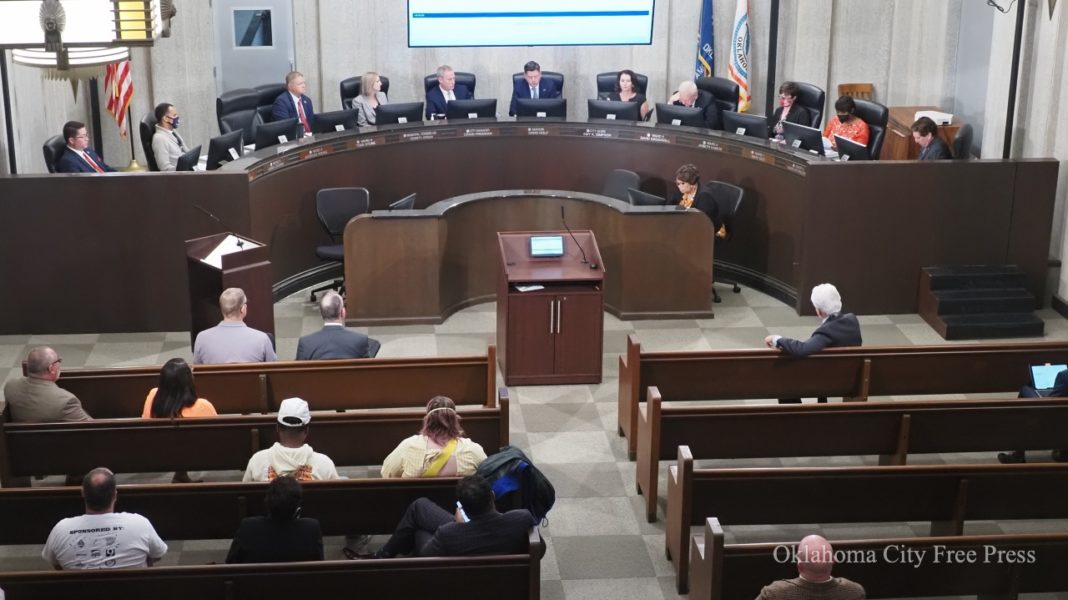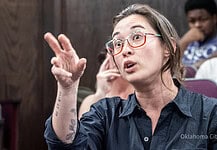Last Updated on August 6, 2023, 2:53 AM | Published: June 7, 2022
OKLAHOMA CITY (Free Press) – On Tuesday, the City Council of Oklahoma City heard a final presentation about the FY23 budget from Budget Director Doug Dowler. Following the presentation, public comment was heard a final time with the Council voting to adopt the proposed $1.8 billion budget.
Much of the meeting time was taken up with the public hearing on a proposed Human Rights Council, where many supporters of the measure and also many naysayers expressed their opinions on the issue. No vote was taken as this is a three-meeting process.
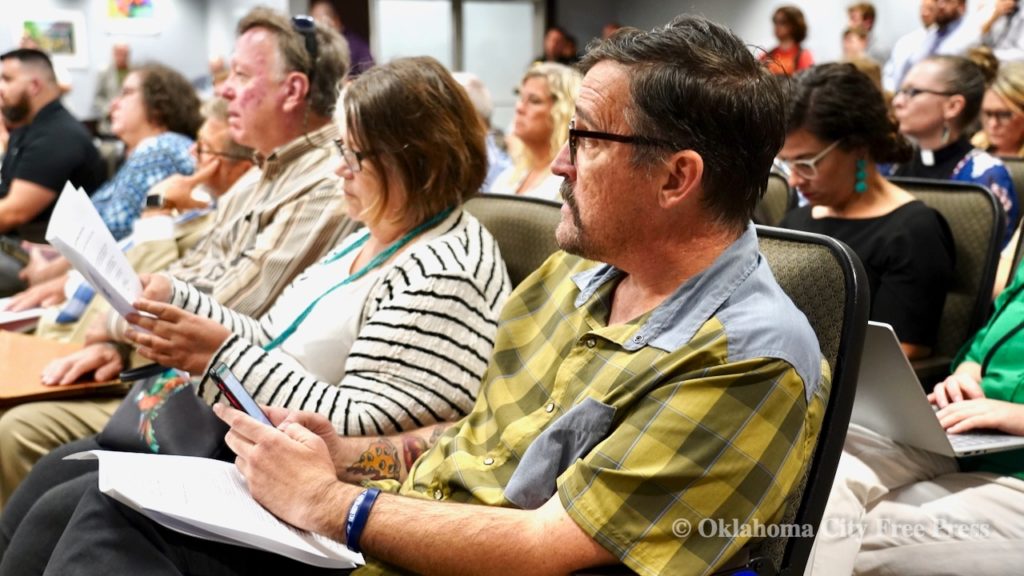
Marty Peercy reports Local government
FY 23 Budget hearing
Over the course of May, the Council held three special hearings for proposed budgets from the major departments of the city. Free Press reported each of those meetings.
- City Council begins budget process with Police and Fire Departments
- Council hears budget proposals — Parks, Dev Services, Planning, Transit
- OKC City Council hears final round of budget proposals for FY23
The budget portion of the agenda led with a public hearing, during which only one member of the public signed up to address the budget with the Council.
Nicole McAfee, noted local nonprofit director and activist, gave prepared comments about the responsibility of creating and voting on a budget.
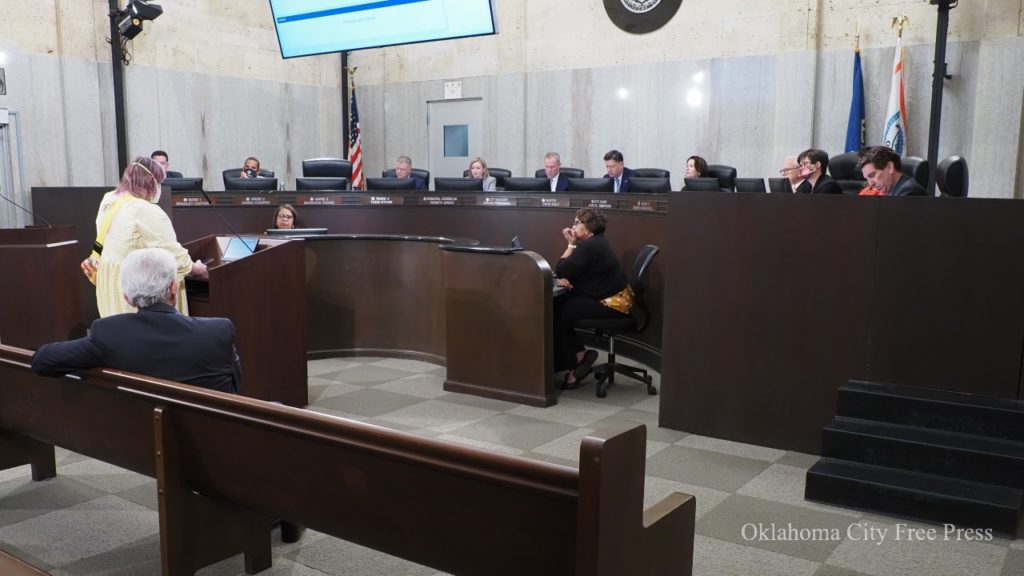
In their comments, McAfee posed the question, “When you ran for elected office, did you know that your role in the municipal budget was to be a rubber stamp, with no room for meaningful input?”
McAfee went on to say that the budget process is not a democratic process, as the Council hears a presentation on potential budget issues in February, then sit through a series of already drafted budgets, expected to be accepted as one in a single vote without discussion of redistribution, prioritization, or addressing community needs.
$1.8 billion is “an amount of money that could ensure we live in a city where everyone is able to meet their basic needs,” McAfee said.
Council budget discussion
After McAfee’s comments, Budget Director Doug Dowler opened the discussion on the total budget with a brief presentation.
Dowler explained that the $1.8 billion budget supports nearly 5,000 City employee positions. Dowler also explained that the main source of funding for the City is sales tax collection.
Tax collections over the past year have shown more growth than expected. With this budget being 8% higher than FY22’s budget, there are concerns about the possibility of recession in the coming year.
Dowler said that there is a buffer in the budget for a -2% growth in the coming year, so the budget should be intact in the event of a recession.
Ward 5 Councilman David Greenwell pointed out that inflation usually raises sales tax collections up to the point when people are unable to purchase goods anymore. He pointed out that Target, America’s second-largest retailer, is experiencing inventory problems as inflation rises and Americans are shopping less. Greenwell also said, however, that gas prices rising dramatically helps our state and local economy.
Ward 2 Councilman James Cooper commented that he would prefer a process where the February “Budget Workshop” was actually a chance to workshop budget ideas, rather than simply sit through a dry presentation about what the City already plans to do. He said he would like to see a much more participatory budget process, allowing more meaningful input from the Council and the residents of this City who are represented by them.
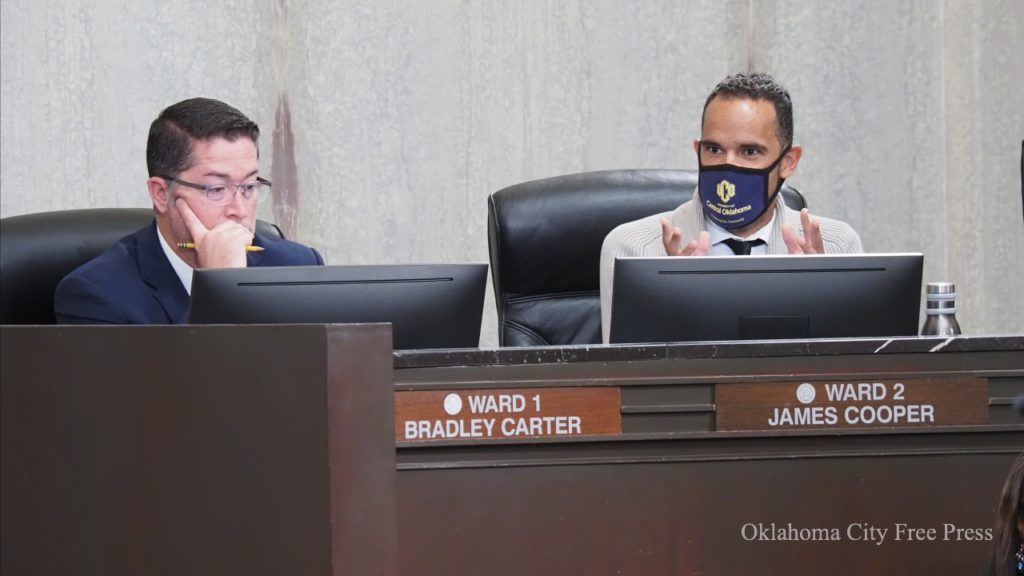
Cooper praised the increase of the transit budget, citing the great success of adding frequency to the final one-hour frequency bus route, Route 018. With an increase in last year’s budget, EMBARK was able to add one extra bus to that route. The route travels up Lincoln past the Capitol all the way to Britton. Ridership on the route has increased by 79% since the route implemented a 30-minute frequency.
Cooper turned his attention to the resolution unanimously passed a few years ago to implement some non-police responses to mental health crises and other non-police related calls. Cooper asked the city manager when an RFP would be issued for a non-police mental health alternative response would go out.
City Manager Craig Freeman said a request for information would likely be presented late summer to find out what sort of groups are available in the area for that work. He also said implementing those changes take time but that now 21cp, a consultant group that spearheaded the Law Enforcement Task Force, is on the job of an implementation process.
The resolution Cooper mentioned was passed in the wake of the uprisings over the murder of George Floyd in Minneapolis at the hands of a police officer in 2020.
Cooper said he would vote in favor of the budget, but if these things don’t start happening he will, of course, have to take the side of those who are marginalized in our community.
Ward 6 Councilperson JoBeth Hamon* made comments on the budget as well.
Hamon said that whenever something related to social services, which is the environment where Hamon’s full time occupation is, there are requests for data and measurable outcomes and other forms of means testing. However, when this budget was presented, specifically increasing the police budget significantly, they received little to no data. Police data was limited to social media engagements and other metrics having nothing to do with crime or law enforcement or public safety.
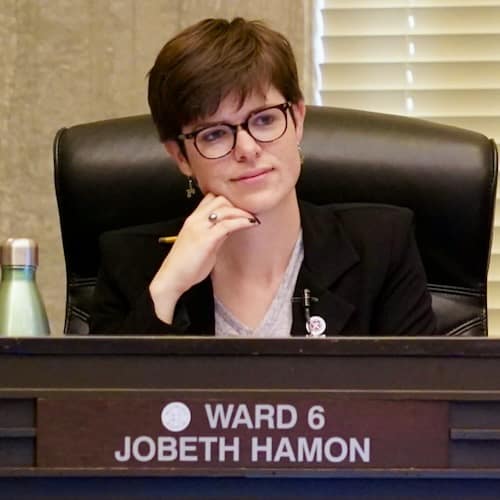
Hamon listed the top ten reasons for police calls, and most of them were not about crisis situations. One category was “loud alarms.”
Hamon went on to say she couldn’t support this budget as the City constantly asks far more of services that help people in the community who are struggling with social issues, but asks nothing of the status quo.
Ward 7 Councilwoman Nikki Nice also commented on the budget process lacking transparency and participation from the public and Council.
The Council then voted to adopt the budget by a vote of 6-2, with Hamon and Nice voting against.
Upon passage, Mayor Holt made the claim that theirs is the most transparent and participatory budget in the country.
Human Rights Commission
A recently introduced resolution to re-establish a Human Rights Commission in Oklahoma City had a public hearing. Many residents signed up to share their thoughts.
In all, ten people signed up to speak for the public hearing. Five of those were distinctly in favor of the Commission’s re-establishment. Four were against it, citing CRT and the federal government draining Social Security, Chinese ownership of land in Oklahoma, and other unrelated conspiracy theories.
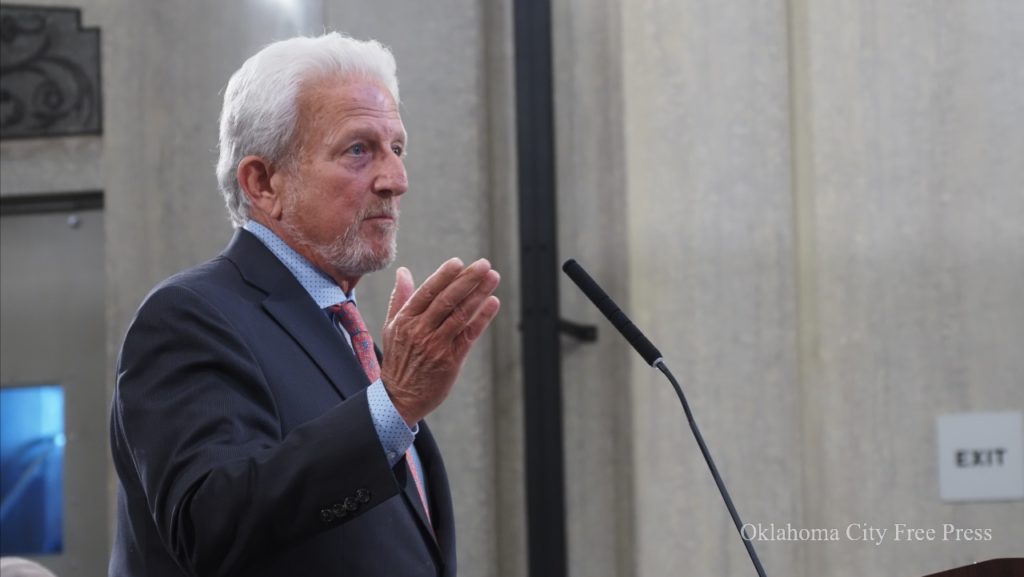
One opponent, noted far-right-conservative activist Robert Hefner, said that he had visited the Attorney General’s office and nobody there had been consulted on this. However, early on in the process, the Human Rights Task Force communicated with the AG’s office and the Equal Employment Opportunity Commission.
Hefner and others criticized the establishment of another commission as “bloat” and “bureaucracy.”
One proponent of the Commission, former state representative Joe Dorman, addressed the Council and said that Commissions are a normal part of the function of a healthy government.
Dorman pointed out that Hefner’s spouse – Carol Hefner – was appointed to the state’s Commission on the Status of Women.
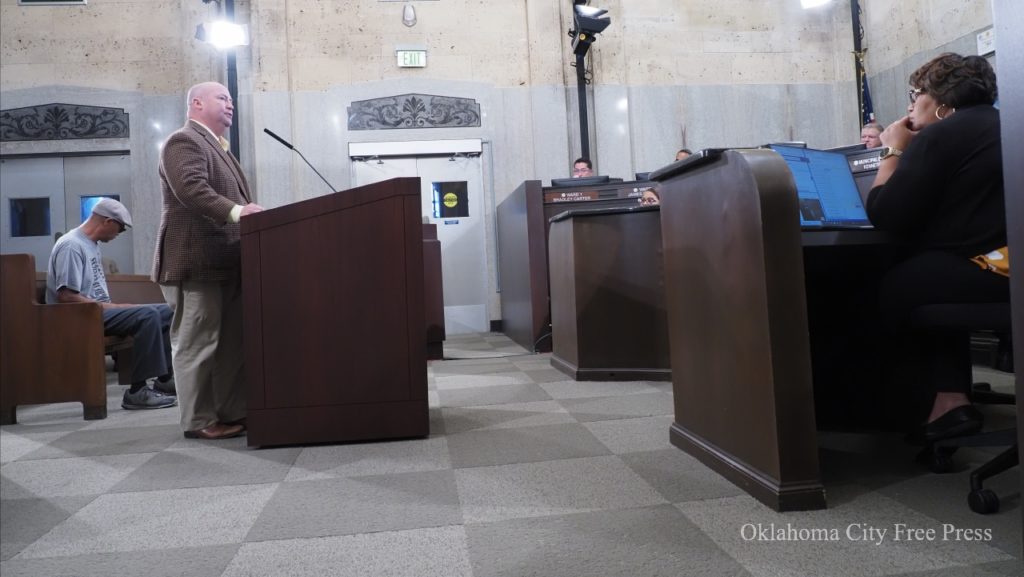
After all comments were finished, Cooper again spoke up.
He discussed the history of Human Rights being codified, and the denial of the same rights being codified as well.
Cooper also pointed out that the previous Human Rights Commission was dissolved in 1996 because some members of that City Council didn’t want protections for 2sLGBTQIA+ members of the Oklahoma City community because of their religion.
After the public hearing, Mayor Holt said that the vote on the ordinance is to be held on July 5, but that it will likely be deferred to July 19 due to expected absences at the July 5 meeting.
The Council meets again on June 21 at 8:30 a.m.
*Disclosure: Reporter Marty Peercy is the husband of Oklahoma City Council member JoBeth Hamon.
Columnist covering local government in Oklahoma City and Oklahoma County from May 2019 through June 2023.
